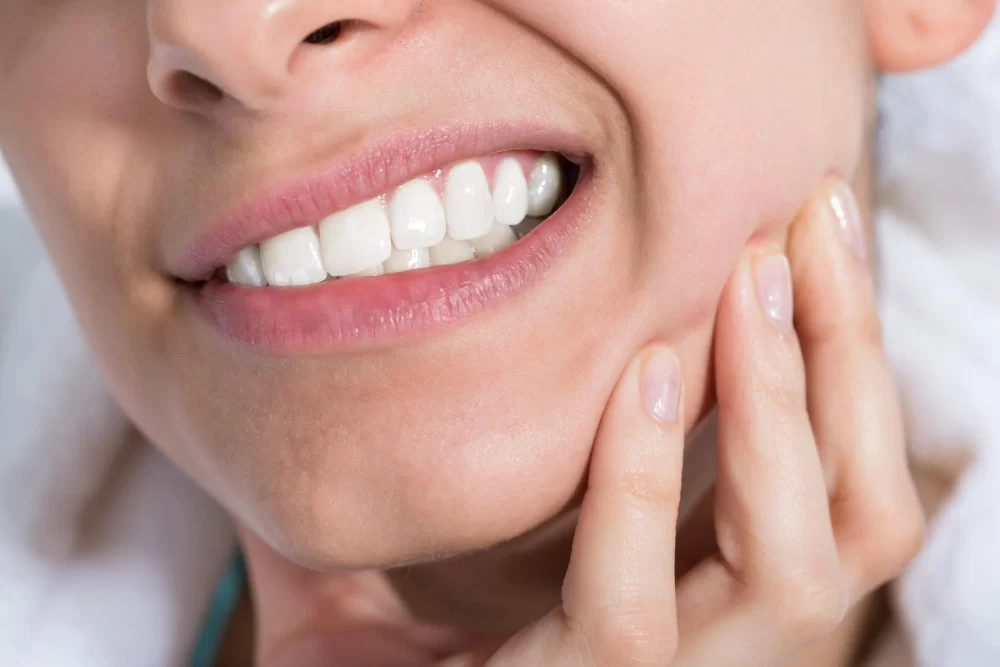
How to Stop Grinding Your Teeth at Night
For as long as I can remember, I’ve had the habit of grinding my teeth at night. It started in my late teens, and at first, I didn’t even know I was doing it. But over time, I began to notice that I was waking up with sore jaws, headaches, and even chipped teeth. As I did some research and spoke with my dentist, I learned that this condition is called bruxism, and it’s surprisingly common, especially at night. If you’re experiencing similar symptoms, you’re not alone, and the good news is there are ways to stop grinding your teeth. I’ll share my journey and the methods that worked for me to manage and eventually stop grinding my teeth at night.
1. Understanding Bruxism: The Cause of Teeth Grinding
The first step in addressing my teeth grinding was understanding why I was doing it in the first place. I was surprised to learn that bruxism, or teeth grinding, is often linked to stress and anxiety. In my case, I was going through a particularly stressful period at work, and it turns out that stress was a major trigger for my night grinding. But bruxism can also be caused by other factors, including misaligned teeth, sleep disorders like sleep apnea, or even certain medications.
After talking with my dentist, I realized that I had a combination of stress and misaligned teeth contributing to the issue. My dentist explained that the grinding was damaging the enamel on my teeth and could lead to more serious problems, such as jaw pain, cracked teeth, and even long-term damage to my gums. This revelation made me more determined to find a solution, and I started looking into different ways to stop grinding my teeth at night.
2. Wear a Mouthguard to Protect Your Teeth
One of the first solutions my dentist recommended was wearing a mouthguard at night. Initially, I was skeptical, thinking that it might feel uncomfortable or cumbersome, but I quickly learned that wearing a mouthguard helped reduce the damage caused by grinding. A mouthguard, also known as a night guard, acts as a cushion between your upper and lower teeth, preventing them from grinding against each other and causing wear.
There are two main types of mouthguards: over-the-counter and custom-made. I opted for a custom-made mouthguard, which my dentist fitted specifically for my teeth. While it was more expensive than an over-the-counter version, I found it much more comfortable and effective. After wearing it for a few nights, I noticed a significant reduction in jaw pain and headaches. The mouthguard didn’t stop me from grinding altogether, but it protected my teeth from further damage.
3. Manage Stress and Anxiety
Since stress was one of the main triggers for my teeth grinding, I knew that managing my stress levels would be key in addressing the problem. At first, I didn’t think stress could be so directly related to bruxism, but after learning more, I realized that stress and anxiety were playing a big part in my nightly habit. To address this, I made a few changes to my daily routine to help manage stress more effectively.
I started incorporating relaxation techniques into my evening routine, such as deep breathing exercises and meditation. I also made a habit of winding down an hour before bed, avoiding stimulating activities like checking work emails or watching intense TV shows. This helped calm my mind and prepare me for sleep. Additionally, I began practicing yoga, which helped relieve tension in my jaw and neck. Over time, I noticed that these relaxation techniques helped reduce the frequency and intensity of my teeth grinding.
4. Address Misalignment with Orthodontic Treatment
Another factor that contributed to my teeth grinding was misalignment. I had never thought much about it, but after speaking with my dentist, I learned that teeth misalignment can cause the jaw to shift in a way that encourages grinding. My dentist suggested I consider orthodontic treatment, like braces or clear aligners, to help correct the misalignment and prevent further grinding.
While I wasn’t thrilled about the idea of braces as an adult, I understood that correcting the issue could not only improve my bite but also reduce the pressure on my jaw that was leading to grinding. After consulting with an orthodontist, I decided to go for clear aligners, which were a more discreet option. The treatment took several months, but I could already feel the difference. With my teeth properly aligned, I noticed that I was grinding less frequently, and my jaw pain gradually diminished.
5. Try Relaxing Herbal Remedies
In addition to physical treatments like mouthguards and orthodontics, I explored natural remedies to help relax my body and mind before bed. I found that certain herbal teas could be very effective in reducing stress and promoting relaxation. Chamomile tea, in particular, became a part of my nightly routine. I would drink a warm cup of chamomile tea about 30 minutes before bed, and it helped me wind down and reduce the tension in my jaw.
I also tried valerian root, an herbal supplement known for its calming properties. While I didn’t notice immediate effects, over time, I felt that it helped improve my sleep quality, which in turn helped reduce my grinding. It’s important to note that herbal remedies may not work for everyone, but they provided a helpful additional tool in managing my bruxism.
6. Maintain a Consistent Sleep Schedule
Having a consistent sleep schedule was another important factor in reducing my teeth grinding. I noticed that when I didn’t get enough sleep or when my sleep was disrupted, my grinding was worse. Sleep deprivation can increase stress and exacerbate bruxism, so I made it a priority to go to bed at the same time each night and get a full 7-8 hours of sleep.
To improve my sleep quality, I also focused on creating a sleep-friendly environment. This meant keeping my bedroom cool, dark, and quiet, as well as limiting screen time before bed. The combination of a consistent sleep schedule and a relaxing environment helped me sleep more soundly, which had a positive effect on reducing my teeth grinding.
7. When to Seek Professional Help
While many cases of bruxism can be managed with home treatments and lifestyle changes, I knew that if my grinding persisted or worsened, I would need to seek further professional help. Persistent grinding can lead to serious dental problems, including tooth fractures, severe jaw pain, and even TMJ (temporomandibular joint) disorders. If the steps I was taking weren’t working or if I started noticing signs of more severe damage, I would consult with my dentist for additional treatment options.
In some cases, dentists may recommend Botox injections, muscle relaxants, or other treatments to reduce the muscle tension associated with bruxism. If you’re struggling with severe grinding or jaw pain, it’s important to reach out to a dentist who specializes in treating bruxism to explore your options and prevent further damage.
Conclusion: Finding Relief from Teeth Grinding
Stopping teeth grinding at night can be a challenging process, but with the right tools and strategies, it is possible to manage and reduce the symptoms. Whether it’s wearing a mouthguard, managing stress, addressing misalignment, or seeking professional care, there are several options available to help. I’ve learned that a combination of treatments, including lifestyle changes and dental care, has helped me significantly reduce my teeth grinding. If you’re struggling with bruxism, I encourage you to explore these options and consult with your dentist to find the best solution for your needs.







 Princeton Dental Dr. Kevin F. Blair, DDS5.0 (3 review)
Princeton Dental Dr. Kevin F. Blair, DDS5.0 (3 review) Rapid City Dental Clinic4.0 (90 review)
Rapid City Dental Clinic4.0 (90 review) Cash Family Orthodontics4.0 (141 review)
Cash Family Orthodontics4.0 (141 review) R+R Dental4.0 (529 review)
R+R Dental4.0 (529 review) 65 Broadway Dental4.0 (516 review)
65 Broadway Dental4.0 (516 review) Ovation Orthodontics4.0 (175 review)
Ovation Orthodontics4.0 (175 review) The Importance of Oral Health Education During Pregnancy for a Healthy Pregnancy
The Importance of Oral Health Education During Pregnancy for a Healthy Pregnancy Best Tips for Brushing Your Teeth Properly for Healthy Gums: Essential Techniques for Oral Health
Best Tips for Brushing Your Teeth Properly for Healthy Gums: Essential Techniques for Oral Health Why Skipping Dental Checkups Can Lead to Bigger Oral Health Problems
Why Skipping Dental Checkups Can Lead to Bigger Oral Health Problems Advantages of Porcelain Dental Restorations
Advantages of Porcelain Dental Restorations How Can Diabetes Cause Tooth and Gum Problems? Preventing and Managing Oral Health Issues
How Can Diabetes Cause Tooth and Gum Problems? Preventing and Managing Oral Health Issues Healthy Habits for Promoting Good Oral Health and Hygiene: Tips for a Healthy Smile
Healthy Habits for Promoting Good Oral Health and Hygiene: Tips for a Healthy Smile